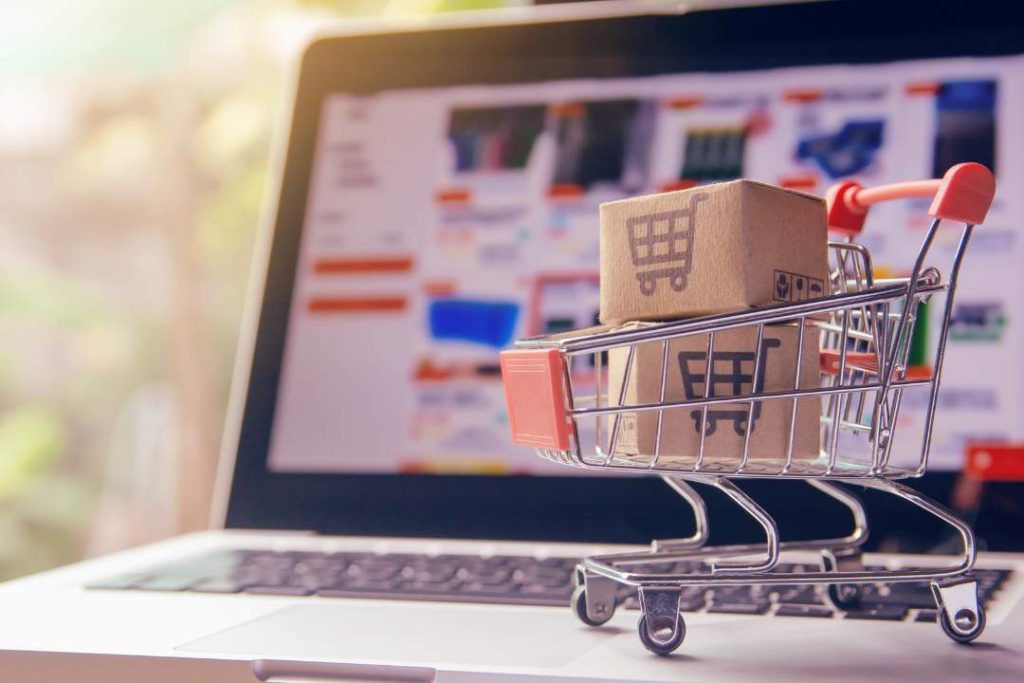El impacto de la IA en Ecommerce B2B

La Inteligencia Artificial (IA) ha revolucionado numerosos sectores, y el ecommerce B2B no es una excepción. Desde sus inicios en el comercio electrónico, la IA ha evolucionado desde simples algoritmos de recomendación hasta sofisticados sistemas que mejoran cada aspecto de la experiencia del usuario y la eficiencia operativa La historia de la IA en el comercio electrónico refleja un crecimiento constante en la adopción de tecnologías avanzadas para mejorar la precisión y la personalización de las transacciones comerciales.
Beneficios de la IA en el Ecommerce B2B
Automatización de procesos
La IA permite la automatización de procesos repetitivos y administrativos, lo que libera tiempo y recursos para que las empresas se concentren en tareas estratégicas. Los sistemas de IA pueden gestionar inventarios, procesar pedidos y manejar la facturación con una eficiencia y precisión inigualables.
Optimización de la cadena de suministro
Con la IA, las empresas B2B pueden optimizar su cadena de suministro mediante el análisis de grandes volúmenes de datos en tiempo real. Esto permite una mejor previsión de la demanda, la gestión de inventarios y la planificación de la logística, reduciendo costos y mejorando los tiempos de entrega.
Personalización de la experiencia del cliente
La IA analiza el comportamiento y las preferencias de los clientes para ofrecer experiencias altamente personalizadas. Desde recomendaciones de productos hasta marketing personalizado, la IA ayuda a las empresas B2B a crear relaciones más profundas y efectivas con sus clientes, aumentando la satisfacción y la lealtad.
Integra tu ERP con un ecommerce B2B con Stoam SaaS


Herramientas de IA para Ecommerce B2B
Chatbots y asistentes virtuales
Los chatbots y asistentes virtuales impulsados por IA pueden proporcionar soporte al cliente 24/7, respondiendo preguntas frecuentes, procesando pedidos y resolviendo problemas comunes. Esto no solo mejora la experiencia del cliente sino que también reduce la carga de trabajo del equipo de soporte.
Análisis predictivo
El análisis predictivo utiliza algoritmos de IA para predecir tendencias futuras basadas en datos históricos. En el ecommerce B2B, esto puede significar anticipar la demanda de productos, identificar patrones de compra y optimizar la estrategia de ventas y marketing.
Recomendaciones de productos
Los sistemas de recomendación basados en IA analizan el comportamiento de compra de los clientes para sugerir productos que puedan interesarles. Esto no solo aumenta las ventas cruzadas y adicionales, sino que también mejora la experiencia del cliente al ofrecerle productos relevantes.
El Futuro de la IA en el Ecommerce B2B
El futuro de la IA en el ecommerce B2B es prometedor, con numerosas tendencias emergentes y desarrollos tecnológicos que continuarán transformando el sector.
Personalización masiva
La IA permitirá una personalización masiva de la experiencia del cliente, donde cada interacción con el cliente será altamente personalizada en tiempo real. Desde ofertas personalizadas hasta experiencias de compra adaptadas, la IA hará posible que las empresas B2B ofrezcan un nivel de personalización sin precedentes.

Automatización avanzada
La automatización avanzada mediante IA abarcará no solo tareas administrativas y repetitivas, sino también procesos complejos como la gestión de la cadena de suministro, la toma de decisiones estratégicas y la planificación empresarial. Esto liberará recursos y permitirá a las empresas centrarse en la innovación y el crecimiento.
Analítica predictiva y prescriptiva
La analítica predictiva y prescriptiva se convertirá en una herramienta estándar para las empresas B2B. Estas tecnologías permitirán prever tendencias del mercado, comportamientos de los clientes y desafíos operativos, ofreciendo recomendaciones específicas para acciones futuras. Esto no solo mejorará la toma de decisiones, sino que también permitirá a las empresas adaptarse rápidamente a los cambios del mercado.
Integración de IA y IoT
La integración de IA con el Internet de las Cosas (IoT) abrirá nuevas oportunidades para el ecommerce B2B. Sensores conectados y dispositivos inteligentes recolectarán datos en tiempo real que serán analizados por sistemas de IA para optimizar procesos, mejorar la eficiencia y crear nuevas oportunidades de negocio.
Transforma tu ERP en un poderoso ecommerce B2B

Conclusión
La inteligencia artificial está revolucionando el ecommerce B2B, proporcionando herramientas y soluciones que mejoran la eficiencia, la personalización y la toma de decisiones. A medida que estas tecnologías continúan avanzando, las empresas que adopten la IA estarán mejor posicionadas para aprovechar las oportunidades del futuro y mantenerse competitivas en un mercado en constante evolución.
Si quieres conocer más sobre todas las funcionalidades que Stoam SaaS ofrece para potenciar tu ecommerce B2B, te invitamos a explorar nuestras soluciones. Nuestro equipo está siempre disponible para resolver cualquier duda que puedas tener. ¡No dudes en ponerte en contacto con nosotros!
Compartir:
Related Articles

What is B2B sales? Know all the keys
What is B2B sales? Know all the keys In today’s business world, B2B sales B2B (Business to Business) has taken

What are the main types of market segmentations that exist?
What are the types of market segmentations? The market segmentation is one of the key strategies in modern marketing, as

Discover what the Canvas model is for and how you can implement it in your ecommerce
Discover what the Canvas model is for and how you can implement it in your ecommerce In the world of

What are the key performance indicators in an ecommerce?
What are the key performance indicators in an ecommerce? In the ecommerce environment, knowing and measuring key performance indicators (KPIs)

B2B vs B2C: Understanding the key differences in e-commerce
B2B vs B2C: Understanding the key differences in e-commerce What is B2B and B2C? B2B (Business-to-Business) Refers to business transactions

What is a retailer and what is its impact on B2B commerce?
What is a retailer and what is its impact on B2B commerce? In the dynamic world of commerce, terms can

How to choose the best payment gateway for your ecommerce.
How to choose the best payment gateway for your ecommerce. Choosing a payment gateway is a crucial decision for any

5 Examples of market segmentation to boost your B2B online strategy
5 Examples of market segmentation to boost your B2B online strategy Market segmentation is a fundamental strategy in any business,

How to Present an Electronic Invoice in Spain
How to Present an Electronic Invoice in Spain What is an Electronic Invoice and Why is it Important? Definition and
Automatiza los pedidos con el ecommerce b2b de Stoam SaaS

